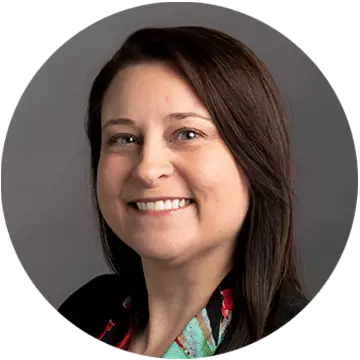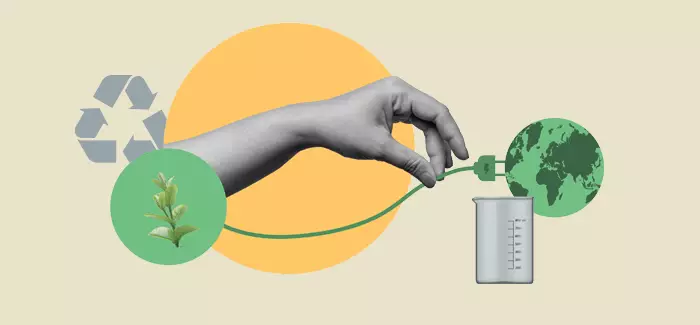Articles > Environmental Science >╠²What is an environmentalist vs. an environmental scientist?
What is an environmentalist vs. an environmental scientist?

Written by╠²Trey Edgington

Reviewed by Briana Houlihan, MBA, G-PM, Dean, College of General Studies

The terms environmentalist and environmental scientist are often used interchangeably. While these titles are related, they are not the same. LetŌĆÖs explore their differences.
Environmentalist defined
Environmentalists care about the natural world and wish to protect it. They may work at a local level, spearheading community-wide efforts, or they may seek to bring awareness on a national level through media and policy.
Environmentalists may organize or participate in a variety of activities and efforts to protect the environment. Much of the work they do starts simply. For example, they may encourage others to:
- Conserve water
- Take reusable bags on shopping trips
- Use energy-efficient lightbulbs
- Plant trees
- Choose nontoxic chemicals and natural cleaners
- Reduce, reuse and recycle resources
Environmentalists may take part in community cleanups. Volunteering can also include activities like working at a sustainable local farm, cleaning hiking trails, climbing areas and other natural sites, removing trash and teaching others to become environmental stewards.
In fact, these local efforts, or grassroots approaches, are sometimes viewed as especially effective because people are invested in making their communities more livable, and it comes with a sense of ownership.
None of these activities take place on their own. They are planned and carried out by dedicated environmental protectors.╠²
What is an environmental scientist?
In contrast to environmentalists, professionals who work in environmental science investigate how natural and human activities affect the environment and peopleŌĆÖs health. They often observe the natural world and collect data for analysis. They may work with interdisciplinary teams, including those focusing on policy and human health. Depending on their findings, they may recommend strategies for managing the relationship between people and the environment, such as ways to reduce pollution or restore damaged areas.
Some focus on research or writing reports. Others educate communities, inform policy changes or guide businesses toward compliance with environmental regulations.
Many may choose this field because they have a strong appreciation of the natural world and want to better understand and support it.
Whether specializing in climate change, environmental health or industrial effects, these professionals work to enhance our understanding of problems and create solutions that help both people and the planet.
Education and qualifications
Environmental scientists typically begin with a bachelorŌĆÖs degree in environmental science or a related field like biology, chemistry, geology or physics. These programs may combine classroom learning with lab work and field studies. Students may take courses in such topics as environmental policy, ecology, conservation biology, environmental ethics and watershed hydrology.
Some organizations may prefer candidates with a masterŌĆÖs degree for research or leadership roles. Graduate programs can enable students to specialize in areas like toxicology, water resources or climate science. They may also offer research projects and internships, which can build practical skills and professional connections.
Typical job responsibilities and areas of expertise
Environmental specialists and scientists handle a wide range of tasks aimed at identifying and solving environmental problems. They use specialized methods to collect data during research, investigations and surveys. They gather and analyze air, water, food and soil samples for data they may then share with individuals who develop policies and regulations.
Scientists also offer analysis and feedback to help organizations comply with environmental regulations. Those working for government agencies monitor how natural resources are used, while consultants advise private companies on compliance.
Areas of expertise vary widely. For example, environmental health and safety specialists examine how human activity affects the environment and then explain these effects to communities.
Day-to-day work can include everything from field research to computer modeling. Many professionals also write articles, organize educational events, lecture, issue press releases or advocate for environmental policies.
Strong skills in data analysis, communication and project management are essential, along with a dedication to continuous learning in an ever-evolving environment.
Jobs, industries and sectors
Environmental scientists work in roles that help identify environmental impacts. Many assist wind farm developers with site studies, impact assessments and permits to protect wildlife and cultural resources. They often work for energy companies or as contractors conducting research and coordinating with engineers and regulators.
For example, environmental compliance inspectors make sure organizations follow laws that protect air, water and land by reviewing records and testing sites for pollution. When they find violations, they document the issue, explain what needs to change and check that it gets fixed. They also help businesses understand the rules to prevent future problems.
Additionally, they may find jobs in hazardous waste management, air pollution control or with companies that produce recyclable products. Positions vary from field research and lab analysis to policy work and community education. Others are employed by nonprofits, government agencies or small private firms that rely on grants or donations.
Specialties include environmental health, restoration planning and climate analysis. Across these sectors, scientists who are focused on the environment use research, analysis and communication to protect natural resources and support sustainable development.
How do they work together?
Environmental scientists investigate the natural world and the human systems that affect it (like pollution or habitat loss) by conducting research and data analysis. Their work produces evidence-based approaches that guide environmentalists, businesses, communities and governments in protecting ecosystems. For example, they might measure sea ice or assess contamination to recommend cleanup plans.
Environmentalists, on the other hand, do work to advocate for change and move others to action. They educate the public and create ecofriendly recreation spaces. They strive to motivate communities to advocate for change and implement sustainable practices.
Together, environmental scientists provide the evidence, and environmentalists turn that information into collective action ŌĆö combining research and advocacy to protect the environment.
Learn more about environmentalists and environmental scientists
If the work of environmentalists and environmental scientists interests you, ░«╬█┤½├Į offers an online environmental science degree: the Bachelor of Science in Environmental Science.
For more information, contact ░«╬█┤½├Į.
╠²
Watch╠²

ABOUT THE AUTHOR
Trey Edgington holds a Master of Arts in creative writing from the University of North Texas, and his short fiction has been published in several literary journals. His professional journey also includes more than 15 years of experience in higher education and healthcare marketing. Over the course of his career, he has held such roles as adjunct instructor of English, senior content editor & writer, and content and SEO manager. Most recently, he has taken on the role of generative AI language consultant.

ABOUT THE REVIEWER
Briana Houlihan is the dean of the College of General Studies at ░«╬█┤½├Į. For more than 20 years, Houlihan has strongly advocated for first-generation and underserved working learners. She has made it her mission to enhance the skills focus within general education coursework to bring value to undergraduate students from day one of their program.
This article has been vetted by ░«╬█┤½├Į's editorial advisory committee.╠²
Read more about our editorial process.






